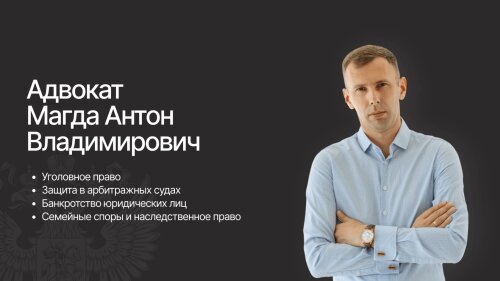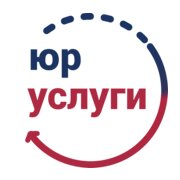Best Juvenile Law Lawyers in Izhevsk
Share your needs with us, get contacted by law firms.
Free. Takes 2 min.
List of the best lawyers in Izhevsk, Russia
About Juvenile Law in Izhevsk, Russia
Juvenile Law in Izhevsk, Russia refers to the legal framework that governs the rights, responsibilities, and legal processes involving minors - typically individuals under the age of 18. This area of law encompasses issues including child protection, juvenile crime, parental rights, social support, and the procedures of juvenile courts. The primary goal of Juvenile Law is to safeguard the rights and well-being of minors while also ensuring that any legal proceedings take into account their age and best interests, as set out by both federal Russian legislation and local Izhevsk policies.
Why You May Need a Lawyer
There are various circumstances where legal advice or representation in Juvenile Law becomes essential in Izhevsk:
- If a minor is accused of a crime or administrative offense.
- When there are disputes related to child custody or parental rights, such as in divorce or family breakdown situations.
- If a child is placed in foster care or removed from the family by social services for safety or welfare concerns.
- In cases of child adoption, guardianship, or establishing legal guardianship for orphans or children deprived of parental care.
- If a child is a victim of domestic violence, exploitation, or abuse.
- When parents face accusations of neglect or failure to fulfill their parental duties.
- If there are questions related to accessing social benefits, education, or medical care for minors.
Local Laws Overview
In Izhevsk, as in the rest of Russia, Juvenile Law is based on federal acts such as the Family Code of the Russian Federation and the Criminal Code. The local government and courts in Izhevsk also implement additional measures and specific procedures tailored to the needs of children and families in the area.
Key aspects include:
- Age of legal responsibility: Generally, minors under 14 cannot be prosecuted for criminal responsibility, but administrative measures may apply from age 16 in certain cases.
- Rights of minors: Children have rights to protection, education, medical care, and to be heard in legal matters affecting them.
- Juvenile justice procedures: Special provisions exist for investigations and court proceedings involving minors, focusing on rehabilitation rather than punishment.
- Child protection services: Local agencies are tasked with investigating child neglect or abuse and may take urgent action to protect the child.
- Parental rights: Parents have both rights and obligations toward their children under the law, but these can be limited or terminated by a court in cases of abuse, neglect, or abandonment.
Frequently Asked Questions
What is the age of criminal responsibility in Izhevsk, Russia?
According to Russian law, children under 14 are not subject to criminal responsibility. For some serious crimes, criminal responsibility can start at age 14, otherwise the age is 16.
Can a minor be detained or arrested?
Yes, but police and the courts must follow special procedures designed to protect the minor’s rights and ensure that their detention is a last resort and for the shortest appropriate time.
What are the legal rights of parents?
Parents have the right to care for, educate, and represent their children, but must also ensure the child's welfare. Courts can limit or remove these rights in cases of proved abuse or neglect.
How does the court handle cases involving child abuse or neglect?
Courts coordinate with child protective services. If abuse or neglect is suspected, the child may be temporarily removed from the home while the case is investigated.
Can a child express their opinion in court?
Yes, Russian law allows a child’s opinion to be heard in matters affecting them, especially from the age of 10 and above.
How is custody decided in Izhevsk?
Custody decisions are made based on the best interests of the child, considering the views of both parents, the child’s relationship with each, and the child’s own wishes if appropriate.
What is the process of adoption?
Adoption involves a legal process, including background checks, home assessments, and court approval, to ensure the child's best interests are protected.
Who provides legal representation for minors?
If a minor is involved in legal proceedings, they are entitled to representation by an attorney. In some cases, the state will provide a lawyer if the family cannot afford one.
What support is available for children from disadvantaged backgrounds?
Various government programs exist to provide social, educational, and health support for children in difficult situations, including state benefits and assistance from local authorities.
What should I do if I suspect a child is being abused?
Contact local child protective services, the police, or a social welfare agency immediately so that they can intervene to protect the child's safety and well-being.
Additional Resources
If you need further help or wish to learn more about Juvenile Law in Izhevsk, consider reaching out to:
- Commission for Minors and Protection of Their Rights (Izhevsk City Administration)
- Local Department of Guardianship and Trusteeship
- Izhevsk offices of the Federal Service for Supervision of Welfare in the Sphere of Protection of the Rights of Consumers and Wellbeing of Human
- Regional Bar Association for legal consultations
- Non-profit organizations and child advocacy groups working locally in Izhevsk
Next Steps
If you think you or a young person you know may require legal assistance concerning Juvenile Law in Izhevsk, it is important to act promptly. Here are some recommended steps:
- Collect all relevant documents and information about your situation, including official forms, correspondence, and identification documents.
- Contact a qualified lawyer specializing in Juvenile Law for an initial consultation. Public defender offices may provide assistance if you cannot afford private representation.
- If the matter is urgent (for example, risk of harm to a child), contact local authorities or child protective services immediately.
- Take notes of all interactions with officials, and follow up in writing to ensure your concerns are formally recorded.
- Utilize local resources such as social service agencies and legal aid organizations for additional support.
Lawzana helps you find the best lawyers and law firms in Izhevsk through a curated and pre-screened list of qualified legal professionals. Our platform offers rankings and detailed profiles of attorneys and law firms, allowing you to compare based on practice areas, including Juvenile Law, experience, and client feedback.
Each profile includes a description of the firm's areas of practice, client reviews, team members and partners, year of establishment, spoken languages, office locations, contact information, social media presence, and any published articles or resources. Most firms on our platform speak English and are experienced in both local and international legal matters.
Get a quote from top-rated law firms in Izhevsk, Russia — quickly, securely, and without unnecessary hassle.
Disclaimer:
The information provided on this page is for general informational purposes only and does not constitute legal advice. While we strive to ensure the accuracy and relevance of the content, legal information may change over time, and interpretations of the law can vary. You should always consult with a qualified legal professional for advice specific to your situation.
We disclaim all liability for actions taken or not taken based on the content of this page. If you believe any information is incorrect or outdated, please contact us, and we will review and update it where appropriate.









